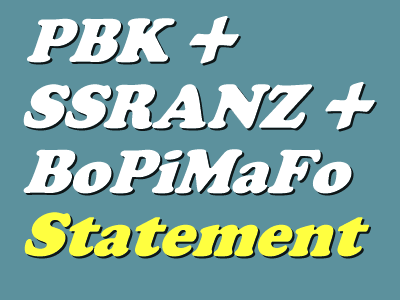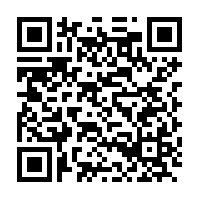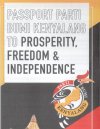 JOINT PRESS STATEMENT Issued jointly by Parti Bumi Kenyalang (PBK), Sabah Sarawak Rights Australia New Zealand (SSRANZ), Borneo’s Plight in Malaysia Foundation (BoPiMaFo)
JOINT PRESS STATEMENT Issued jointly by Parti Bumi Kenyalang (PBK), Sabah Sarawak Rights Australia New Zealand (SSRANZ), Borneo’s Plight in Malaysia Foundation (BoPiMaFo)
A Historical Fraud Still Denying Justice
Newly declassified British colonial documents confirm that the so-called “formation of Malaysia” on 16 September 1963 was a fraudulent annexation of North Borneo (Sabah) and Sarawak, carried out in collusion between the United Kingdom, the Malayan government, and then UN Secretary-General U Thant.
Contrary to popular claims, the United Nations never recognised Malaysia. Instead, Malaya and the UK exploited procedural loopholes, bypassing a proper UN membership application and suppressing the right of Sabah and Sarawak to full independence.
The evidence shows:
The UN mission in 1963 was rigged and tokenistic, consulting only a tiny fraction of the population and never offering independence as an option.
The Malaysia Agreement (MA63) was signed when Sabah and Sarawak were still colonies with no legal capacity to enter into treaties, making MA63 void ab initio.
MA63 was not registered with the UN until 1970, in breach of Article 102 of the UN Charter, rendering it legally unusable at the time.
These flaws mirror the Chagos Islands case (ICJ, 2019), which confirmed that colonial powers cannot lawfully dispose of non-self-governing territories without the free and genuine will of the people.
A Continuing Injustice in 2025
This unfinished decolonisation is not merely historical. Its consequences are felt daily in Sabah and Sarawak:
Denial of full control over oil and gas resources, despite MA63 promises.
Federal failure to honour the 40% revenue entitlement under the Constitution.
Parliamentary under-representation, with Sabah and Sarawak still holding fewer than one-third of seats.
Systematic socio-economic marginalisation, violating the right to self-determination and development under international human rights law.
Time does not legitimise injustice. The fraudulent foundation of Malaysia continues to deny the peoples of Sabah and Sarawak their lawful rights.
Call to Action: The UN Must Act
We call on the United Nations to:
1. Acknowledge that the decolonisation of Sabah and Sarawak was never lawfully completed.
2. Recognise the continuing right of their peoples to self-determination under UNGA Resolutions 1514 and 1541.
3. Refer the matter to the Fourth Committee (Decolonisation) for impartial investigation.
4. Facilitate a UN-supervised act of self-determination, including the option of independence.
The credibility of the UN’s decolonisation mandate is at stake. If the UN fails to act, it continues to legitimise a colonial-era fraud.
Signed:
Voon Lee Shan, President, PBK
Daniel John Jambun, President, BoPiMaFo
Robert Pei, President, SSRANZ
ANNEX
Historical and Legal Evidence on the Fraudulent “Creation” of Malaysia
1. Fraudulent Integration of Sabah and Sarawak (1963)
On 16 September 1963, the United Kingdom and Malaya unlawfully integrated North Borneo (Sabah) and Sarawak into the Malayan Federation, renamed “Malaysia.”
This act violated international law, including:
UNGA Resolution 1514 (1960): Declares that all peoples have the right to self-determination, and colonialism must end unconditionally.
UNGA Resolution 1541 (1960): Requires integration with another state to occur only after the people freely and genuinely express their wishes, with independence as an option.
The Manila Accord (31 July 1963) between Malaya, the Philippines, and Indonesia required an impartial UN process to ascertain the wishes of the Borneo peoples before Malaysia’s formation.
Instead, the UK and Malaya circumvented international scrutiny by:
Declaring Malaysia to be a “name change” of Malaya to avoid submitting a new application for UN membership under Article 4 of the UN Charter.
Prematurely announcing Malaysia’s formation on 28 August 1963, while the UN mission was still ongoing.
2. UN Secretary-General’s Complicity
Declassified British telegrams (Colonial Secretary, 8 August 1963) reveal that UN officials assured the UK that the assessment teams would be “handpicked” to produce the right results.
The UN mission:
Consulted only a fraction of the population.
Did not include independence as an option.
Issued a report endorsing Malaysia despite clear flaws.
UN Secretary-General U Thant compounded the fraud by:
Preventing the UN Committee of 24 (Decolonisation Committee) from reviewing the process.
Ignoring the premature declaration of Malaysia on 28 August 1963.
These actions violated Article 100 of the UN Charter, which requires UN staff to act independently of governments.
3. MA63 as a Legally Defective Instrument
The Malaysia Agreement (MA63) was signed on 9 July 1963, but not registered with the UN until 21 September 1970, a 7-year delay contrary to Article 102 of the UN Charter.
As such, MA63 could not legally be invoked before UN organs in 1963.
Article 1 of MA63 described Sabah and Sarawak as “colonies,” confirming they lacked the international legal personality to sign treaties.
Under the Statute of Westminster (1931), only self-governing Dominions had treaty-making capacity, not Crown Colonies.
4. Breach of Decolonisation Rules
No referendum was held in Sabah and Sarawak offering independence, violating Resolutions 1514 and 1541.
The Cobbold Commission (1962) and UN mission (1963) were flawed, tokenistic exercises.
Alternatives such as an independent Federation of North Kalimantan were deliberately excluded.
The Brunei Uprising (December 1962) was used as a pretext for military suppression and to accelerate the Malaysia project under coercive conditions.
5. International Legal Precedents
The ICJ Advisory Opinion on the Chagos Archipelago (2019) reaffirmed that colonial powers cannot dispose of non-self-governing territories without the genuine and free will of the people.
The parallels with Sabah and Sarawak are clear: both cases involve colonial powers unlawfully transferring territories without consent.
Recent UN-supervised acts of self-determination (e.g., East Timor, 1999; South Sudan, 2011) demonstrate that delayed justice can and must be corrected.
6. Implications for the UN
By relying on an unregistered treaty (MA63) and endorsing a rigged mission, the UN acted ultra vires in 1963.
The UN’s role in legitimising Malaysia undermined the integrity of the decolonisation process.
This failure continues to deny Sabah and Sarawak their lawful right to self-determination and equality.
Conclusion
The integration of Sabah and Sarawak into Malaysia in 1963 was not an act of lawful decolonisation, but a colonial-era fraud carried out with UN complicity.
Consistent with international law, the UN must now:
Acknowledge the illegitimacy of the 1963 process.
Recognise Sabah and Sarawak’s continuing right to self-determination.
Facilitate a UN-supervised act of self-determination to finally complete decolonisation.
Ends
References
United Nations Charter, Articles 4, 100, and 102.
UNGA Resolutions 1514 and 1541 (1960).
The Manila Accord (1963).
ICJ Advisory Opinion on Chagos Archipelago (2019).
Declassified UK Colonial Secretary Telegram (8 August 1963).









